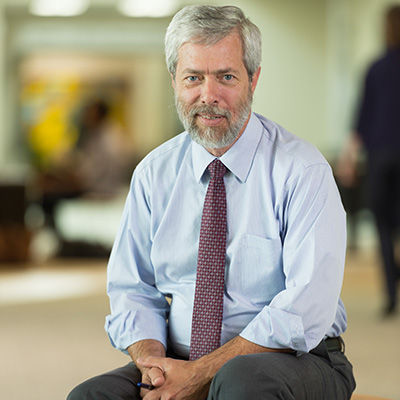Cultivating the Life of the Mind: Threat No 2 - Sentimentalism
We need to make the case for communities of teaching and learning that have a fundamental commitment to cultivating the life of the mind – something that is essential to the mission of the church but also to what we mean by Christian formation and discipleship. As noted, though, this commitment and resolve is under threat from at least three sources: pragmatism, sentimentalism and partisan propaganda.
With regard to sentimentalism, I am not sure if there is a better word for this, but what I mean to highlight is the craving for experience that bypasses critical intellectual engagement – depth of emotion without a corresponding engagement of the mind. Whether it is the sentimentalist, the enthusiast, or the more ancient term coming out of Spain, the “alumbrado” (who spoke of an inner light that guided them – not theological understanding or wisdom), I mean to profile the inclination both in society and in the church to pursue experience, heightened religious experience, without reference to critical thought. We see this in the desire for preachers and speakers for our churches or our church conferences or assemblies who are more likely to be revivalists than thoughtful expositors: the rhetoric that appeals to the longing for inspiration through exciting stories and the failure to see that without engaging the mind, the sentiments are fleeting and superficial.
Sometimes, the feeling is nothing more than nostalgia, the kind of “old time religion gospel hour” that hearkens back to a previous time of supposed religious ferment. But most typically, it arises from an assumption that if something feels right, feels good, that it is somehow transformative. Emotion and affect become an end in themselves; the church is a place to feel good; worship is little more than a “happy-clappy” escape from the drudgery of life and work. The Holy Spirit in the end is nothing other than an agent of emotional intensity, and we assume that if the Spirit is present that this is felt, and the more present the Spirit the more intense the experience.
Few have challenged this propensity as powerfully as the 16th century Spanish mystics, notably John of the Cross and Teresa of Avila, and then later the spokespersons for the evangelical renewal of the late 18th century, notably John Wesley and Jonathan Edwards. All four of these giants in the history of the church are more relevant than ever; we need to hear them and especially on this score when they challenge as misguided the craving for religious experience that is not informed by depth of theological reflection and intellectual rigour. For the 16th century mystics, they actually insist that we only mature in our faith when we are weaned from the longing to “feel” God. This longing, they stress, is actually a distraction from the deep work of God – and thus John of the Cross speaks of the “dark night of the senses” as a way to profile how the Spirit’s deep work in our lives is as often as not happening in the quiet, in the actual lack of sensory awareness of the Spirit’s presence.
For Evangelical Christians, we turn to the towering genius of Wesley and Edwards. Jonathan Edwards, perhaps the greatest of all American theologians, spoke of sentimentalism as dangerous – spiritually dangerous – stressing that all true religious affections are informed by clarity of understanding. The genius of his British counterpart, John Wesley, was very specifically the articulation of a spirituality that sought for the integration of affect and intellect. Edwards and Wesley are not for a moment suggesting that matters of the heart are to be dismissed; they are not rationalists. Rather, they insisted that all authentic religious experience is grounded in clarity of understanding, depth of theological reflection and thoughtful engagement with our world. That is, they believed in the integration of head and heart.
Here is where I seek to make the case that the greatest of all hymn writers in the history of the church was Charles Wesley – John’s brother: his power and significance was precisely that he was a theologian and song writer. He knew how to capture depth and nuance and understanding and express this through song such that what we are singing shapes and informs and transforms; we sing heartily the great truths of our faith. And I long for contemporary song writers to follow this example: learn what it means to engage head and heart through song. And with this realization: true worship and transformative preaching is thought-full; we are transformed by the renewal of the mind. Or, as the Apostle puts it in Colossians 1 – he prays that his readers would be “filled with the knowledge of God in all spiritual wisdom and understanding . . . “(Col 1:9).

